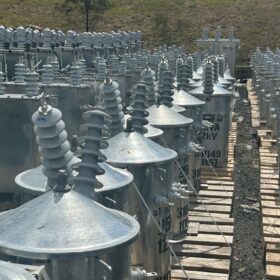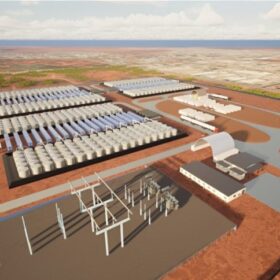Software can reimagine breakthrough battery tech to power the electric future
By understanding the challenges that impacted the solar industry, battery material manufacturers will be better equipped to scale next-generation technologies from the lab to have a real-world impact.
Portable solar carport designed by student wins Genius award
Dubbed Gismo Power, the appliance is entirely mobile, can be grid-connected, and may be folded for storage.
Sunday read: Is sustainable market development possible?
Module manufacturers have once again adjusted their prices upwards. This is already the third or fourth price increase in the last six months, and there is no end in sight, writes Martin Schachinger of pvXchange. But why is it so hard to achieve long-term, sustainable development in the global solar market, at least on the part of manufacturers? Few other industries are so turbulent, with constant swings between excess supply and bottlenecks, between price collapses and price rises – and always to the breaking point of the market. Yet again, planning security is out the window.
‘Green steel’ is hailed as the next big thing in Australian industry. Here’s what the hype is all about
Steel is a major building block of our modern world, used to make everything from cutlery to bridges and wind turbines. But the way it’s made – using coal – is making climate change worse.
IHSM clean energy insights: High module prices and shipping costs jeopardize 2021 installation outlook
In the first installment of a new monthly blog by IHS Markit, Edurne Zoco, executive director for clean energy technology, writes that high prices and increased freight costs are putting solar PV procurement teams under extreme pressure, particularly those teams with connection deadlines this year that were anticipating a more favorable pricing and logistic environment in the second half of 2021.
10 million reasons why we need to talk about NEM generator operations
Whilst automated rebidding got some coverage from the most recent Australian Electricity Market Operator (AEMO) Quarterly Energy Dynamics, something else happened in the quarter that seemed to get less attention but is possibly much more important to operations for wind, solar and battery owners in the National Electricity Market (NEM).
Simple trick to protect PV systems from pigeons
A German PV system owner has developed a simple solution intended at preventing the birds from nesting under the modules.
Australia’s energy storage installed base to grow more than five times by 2030
In its latest report, IHS Markit predicts that energy storage installations in Australia will grow from 500 MW to more than 12.8 GW by 2030. Today, Australia makes up less than 3% of total global installations for battery energy storage and is the seventh largest market globally. By 2030, it is forecast to comprise 7% of global installations and become the third largest market. This growth will be largely driven by three distinct market segments: residential, standalone front-of-the-meter, and collocated with utility-scale renewables.
Sunday read: Life after PERC
The pursuit of higher conversion efficiencies is an eternal theme in the PV industry. Among all the links in the chain, cell technology is the most fundamental and decisive element. As we look beyond the established PERC technology, whether heterojunction or TOPCon will become the dominant “next-gen” solar cell among China’s manufacturing giants is emerging as a balancing act between incumbent and upstart, reports Vincent Shaw from Shanghai.
Saturday read: Five trends to watch in Southeast Asia
Minh K Le, senior renewables analyst at Rystad Energy, examines five key trends to watch in Southeast Asia utility-scale solar, as mega-scale projects ramp up, Indonesia emerges, and Vietnam steps back.















